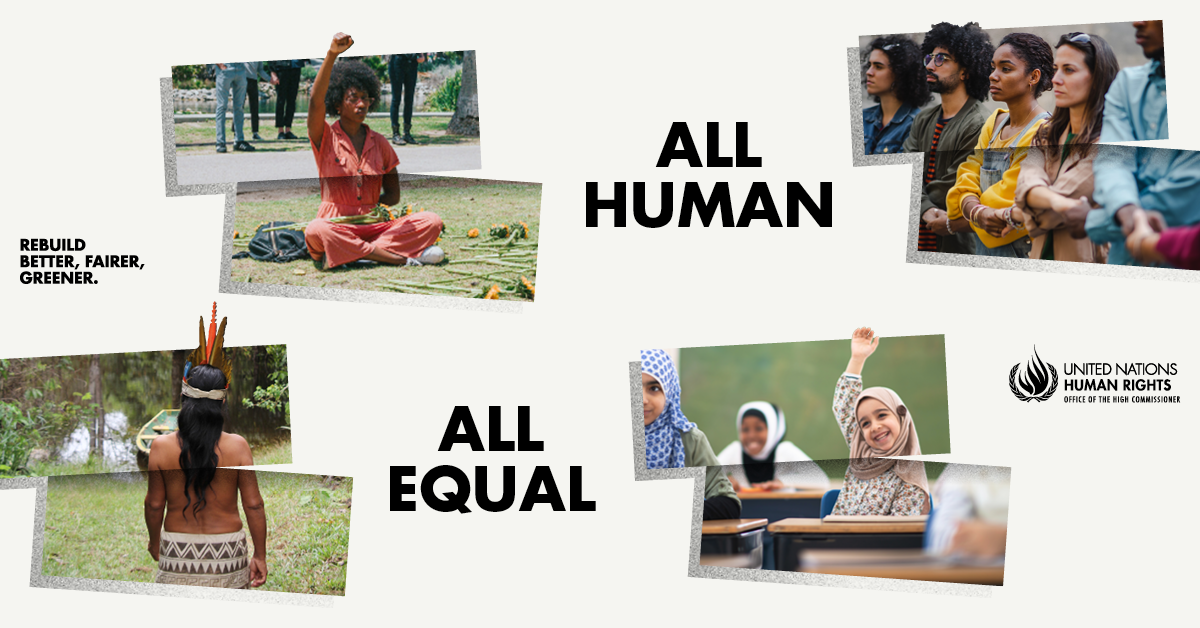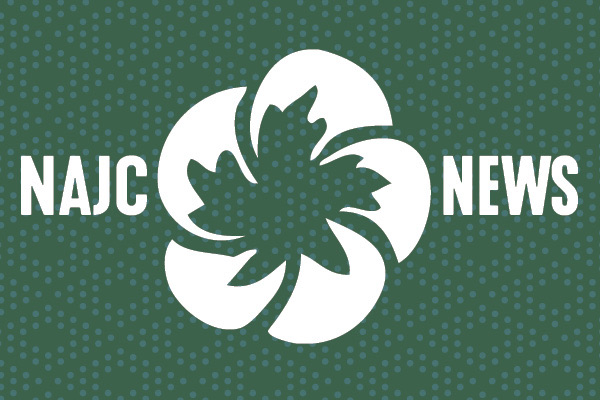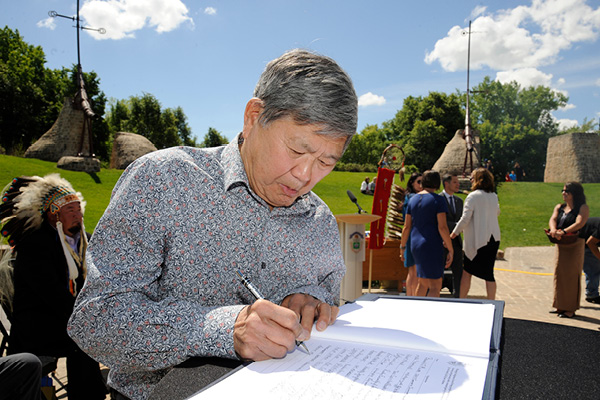As Japanese Canadians we are reminded that on November 9th, 1945, Canada ratified the Charter of the United Nations adopted earlier that year in San Francisco. Prime Minister William Lyon Mackenzie King was a signatory to the charter whilst his government exiled its own citizens, most born in Canada, to Japan. The injustices endured by Japanese Canadians continued until April 1, 1949
The subsequent Universal Declaration of Human Rights contained a clause about the right to move freely. It was signed by Canada, despite the fact that Japanese Canadians did not have that right. When this issue was raised by government officials, a Member of Parliament from British Columbia wrongly argued that “there was no human rights violation in the treatment of the Japanese, who had been interned, not because of “race” but because of “loyalty or subversive attitudes.” The Declarations was adopted on December 10th, 1948.
Let this be a lesson in how state sanctioned racism can be perpetrated domestically whilst a country maintains an international appearance of equal rights for all.
In 2021 it has become clear that to ensure that Canada’s international reputation aligns with the reality of its history, it is important to remain committed to the recommendations of the Truth and Reconciliation Commission. We take to heart these words of Phil Fontaine, former National Chief of the Assembly of First Nations: “The attempt to transform us failed. The true legacy of the survivor, then, will be the transformation of Canada.”
Our work today, tomorrow, and thereafter is to be part of that transformation. In so doing, we must remain vigilant to ensure that the actions, not just the words, of our elected officials are truly in keeping with the United Nations Human Rights Declaration, its 2021 statement and The United Nations Declaration on the Rights of Indigenous Peoples (UNDRIP).
As Japanese Canadians we will continue to present our historic experience of systemic racism and injustice with intent to ensure such injustice will not be perpetrated upon any other people, and we stand in solidarity with the Indigenous, Black, LGBTQ2+, Muslim and Jewish communities, other communities of colour, and all those who have experienced hate, racism, inequality, and injustice.
BACKGROUND https://www.un.org/en/observances/human-rights-day
Human Rights Day is observed every year on 10 December — the day the United Nations General Assembly adopted, in 1948, the Universal Declaration of Human Rights (UDHR). The UDHR is a milestone document, which proclaims the inalienable rights that everyone is entitled to as a human being – regardless of race, colour, religion, sex, language, political or other opinion, national or social origin, property, birth or other status. Available in more than 500 languages, it is the most translated document in the world.




